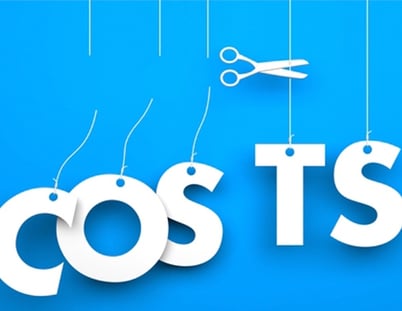How to Effectively Keep Track of Your Business Expenses
Written by Eddy Hood
 The amount of money that small businesses spend on business expenses plays a large role in determining whether or not these businesses will be successful. Small businesses that spend a lot of money on expenses must make up for these expenses by generating a lot of profit. Those that are unable to generate a large profit but have many expenses will struggle to remain in business. Because businesses must strike a delicate balance between expenses and profit, it is important to continually evaluate expenses. Evaluating these expenses allows business owners to determine where they are spending the most money and determine ways to minimize expenditures.
The amount of money that small businesses spend on business expenses plays a large role in determining whether or not these businesses will be successful. Small businesses that spend a lot of money on expenses must make up for these expenses by generating a lot of profit. Those that are unable to generate a large profit but have many expenses will struggle to remain in business. Because businesses must strike a delicate balance between expenses and profit, it is important to continually evaluate expenses. Evaluating these expenses allows business owners to determine where they are spending the most money and determine ways to minimize expenditures.
Small Business Expense Tracking
By decreasing the amount spent on business expenses, small businesses are able to increase their profit margins. Before business expenses can be evaluated, business owners must properly track business expenses. How to keep track of business expenses is ultimately a matter of personal preference, as there are several ways to go about this task. Some of the most popular methods of tracking business expenses include the use of paper filing, spreadsheets, and software systems. Each of these methods focuses on organizing business expenses by specific categories and regularly updating the amounts spent in each one to discover the total business expenses of a company.
How to Track Business Expenses
The paper method of small business expense tracking involves keeping copies of all receipts; using this method, it is possible to keep track of business expenses through a paper log. These receipts are stored in a filing cabinet and are readily available. Although the paper method may seem like an outdated style of tracking business expenses, it is ideal to keep copies of receipts regardless of which method is used. Keeping copies of expense receipts is especially helpful when it comes to filing tax returns. The IRS does not require receipts for business expenses that are less than $75.00, but it is recommended that small businesses retain receipts for all purchases to track business expenses effectively.
Business owners can also track business expenses through the use of spreadsheets or software specifically designed for small business expense tracking. Spreadsheets and software use computerized logs to track expenses in a similar fashion to paper logs. These forms of business tracking are preferred by a lot of companies, as it requires less physical storage space and records can be accessed from nearly anywhere at any time. It can also be much easier to organize business expense categories and update totals when using this method. The most common business expense categories included in software tracking systems include rent, utilities, travel costs, client entertainment, payroll, taxes, and supplies. Often, small business expense tracking software calculates costs automatically when expenses are entered, which saves a lot of time in comparison to other methods.
Ignite Spot can save small business owners both time and money. With our outsourced accounting services, we can help you increase profits and grow your business. You can rely on our team of experts for assistance with small business expense tracking or other bookkeeping services. Download our online pricing guide or contact our outsourced accounting firm today at 1-855-694-4648!
Lean More About Financial Reporting:
- What is an Accounts Receivable Aging Report?
- What is an Accounts Payable Aging Report?
- What are Cash Flow Statements?
- What are Managerial Accounting Reports?
- What are the Four Basic Financial Statements?
- What are Common Business Expenses?
- How to Keep Track of Business Expenses









.png)



